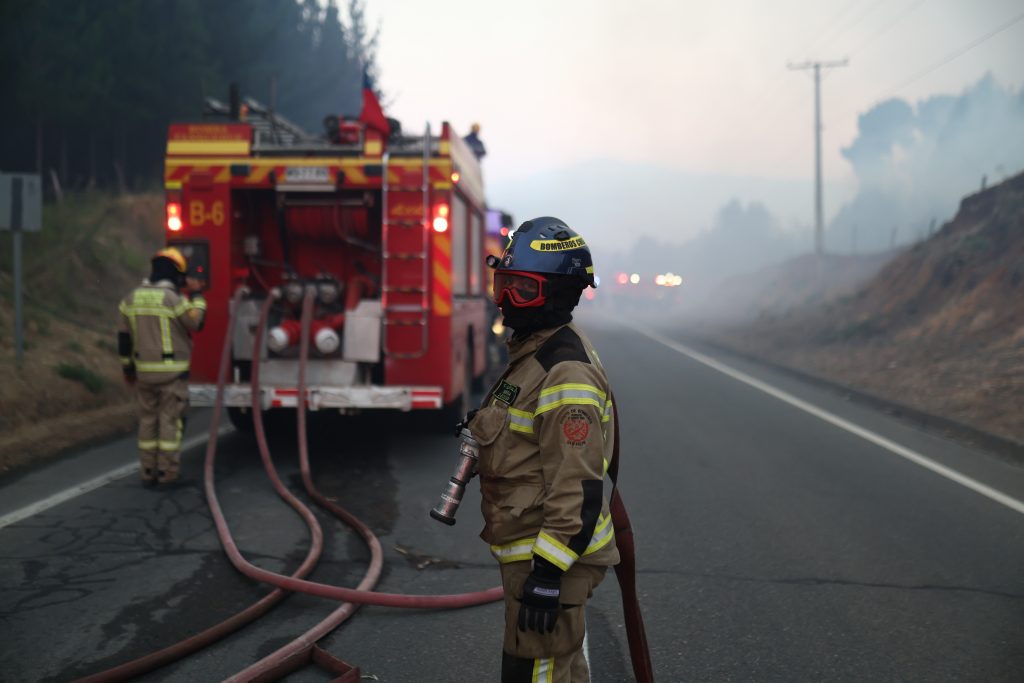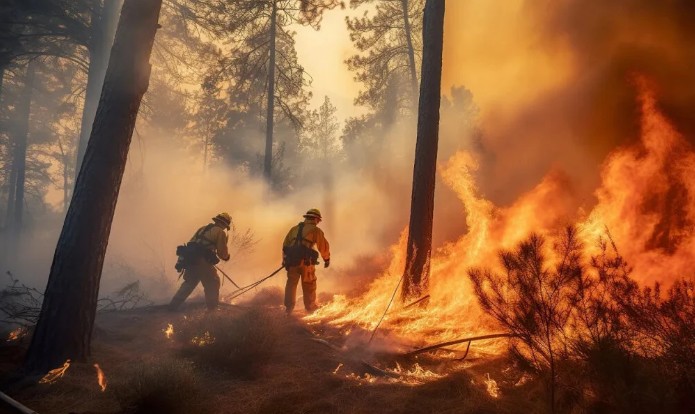The forestry sector is facing a complex scenario. Fires, lack of security, a concrete shortfall in plantation incentives, the urgent need to boost prevention efforts, and the critical importance of having an institution dedicated entirely to this industry have sparked debate among those involved in or leading the development of this vital sector for the country.
According to Roberto Cornejo, president of the College of Forestry Engineers of Chile, the forestry sector is currently under significant threat, particularly small and medium-sized forest owners and timber SMEs.
"They are the most affected by the stagnation of the forestry sector and the abandonment by the state. The aid provided by the government to plantation owners impacted by the 2017 wildfires was entirely insufficient, and it is highly likely this situation will repeat with this season's fires," he noted.
He added that CONAF (National Forestry Corporation) has already stated that small landowners affected by emergencies will not receive state support unless they replant their burned lands with native species. A large proportion of small sawmills have gone bankrupt due to authorities' indifference. Regardless of the government's political stance, timber SMEs and small forest owners are not being considered.
Aftermath Assessment
Meanwhile, José Carter, president of the Native Forest Owners Association (Aprobosque), added that post-disaster assessments reveal around 45,000 hectares (INFOR source) of native forest were affected by wildfires, and over 200,000 hectares have burned since 2017. This figure does not include plantation areas.
"The question is: How much have we learned since 2017 about prevention, firefighting, and restoration? Very little. We know supertanker planes can operate in our complex topography, but that hasn’t been enough. The irrationality of those who seek to change the forestry model with fire has led many families to lose everything," he stated.
He emphasized that years of work turned to ashes in minutes, not to mention families who lost loved ones. This madness must be confronted decisively, as most fires are intentional or due to inexcusable negligence.
"Thus, we must urgently address these two causes through collaboration between the government and civil society. Prevention must be prioritized. Every peso invested there is justified if it saves even one life. We must educate relentlessly in communities, and authorities must fulfill their duty to ensure safety," he stressed.
Catastrophic Scenario
Rodrigo O’Ryan, president of the Chilean Biomass Association (Achbiom), added that the current situation is catastrophic, especially for forestry and timber SMEs.
"Fire assessments predict a shortfall of 7–8 million m³ annually for radiata pine. The industry has consumed an average of 29 million m³ yearly, meaning a 30% deficit. This will severely impact the timber industry, particularly between 2023–2025, as much wood was lost or harvested prematurely for lower-value uses in a depressed market," he highlighted.
He noted that medium and small owners who lost everything or most of their lifelong investments face additional insecurity. "Who will plant if the state cannot uphold the rule of law, with high risks of arson over 12–21-year rotations (eucalyptus and pine, respectively)? Neighbors also resist potential fire hazards near their homes. Worse, there are no state incentives or insurance to encourage replanting."
The pulp sector is also struggling. International prices have plummeted since late last year, now barely covering production costs. This has slashed demand for pulpwood and export woodchips, affecting large and small suppliers alike, including sawmills and supply-chain businesses.
"With vast burned areas needing urgent salvage and replanting, we face a 'perfect storm'—unpredictable and hard to manage. This crisis hits a sector critical to population livelihoods and GDP," he warned.
Complementary Measures
Michel Esquerré, president of Pymemad Biobío, argued for creating a forestry service or even a ministry, as agriculture and forestry are complementary in Chile’s mixed-landscape properties.
"The state has failed to intelligently address forestry challenges, allowing its reputation to suffer from false myths and social media. We must defend it—it’s as vital as agriculture," he asserted.
He stressed that carbon neutrality is unattainable without a robust forestry sector, yet small and medium owners are neglected. "Timber is sensitive to economic cycles but increasingly crucial in combating global warming, as wood naturally replaces plastics, steel, and high-carbon products. Humanity needs forest products," he affirmed.
On plantation incentives, he noted their critical role, as small owners wait 20 years for pine growth. Without state support, plantations—and the industry—will collapse under fires and adverse conditions.
"Plantations are also needed for landscape diversity; homogeneity doesn’t exist," he added.
Regarding security, Esquerré said cities dominate societal attention, but urban sustainability depends on agriculture and forestry. "Cities produce 70% of greenhouse gases, while plants and forests absorb them," he reminded.
Human Footprint
Emilio Uribe, president of the National Forestry Society (SNF), noted that 2017 and this year’s fires repeat a pattern: unchecked human-caused burns devastate forests and crops, crippling farmers and SMEs.
"We urgently need to identify perpetrators, causes, and solutions. This is our first major reflection—why has this recurred, worse than before?" he questioned.
Many SMEs saw their assets vanish, leaving little motivation to continue. "Santa Juana and Nacimiento were devastating. Brave women and workers, despite criminal acts, cling to hope through resilience," he shared.
Stagnation and Regression
René Muñoz, manager of Acoforag, stated the forestry sector shows serious stagnation and regression. "No investment projects, no afforestation incentives, no legal certainty, and no interest in native forests—which rot, burn, or are stolen daily. The state ignores this sector’s potential to improve regional economies," he emphasized.
Combined with recent fires, the tragedy deepens. Many small owners lost savings and investments, with recovery unlikely. The state must subsidize reforestation to support them.
On security, he highlighted a decade of neglect in forest operations and southern public roads. "We filed an ILO complaint over Chile’s violation of 2011’s Convention 187 on safe workplaces. Workers are shot, equipment burned—just for working in forests. The state must act," he declared.







Comments (0)
No comments yet. Be the first to comment!
Leave a comment